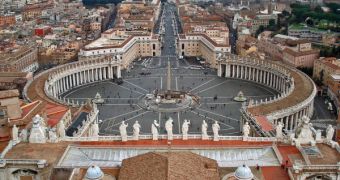At a UN conference on race that took place on Wednesday, the message that the Vatican had to send was pretty clear – the Catholic Church feared that genetic alterations of babies could spawn a new type of racism worldwide. Pope Benedict XVI argues that the ability to alter traits in unborn babies could lead to a new type of eugenics, with potentially devastating consequences for people. The head of the Church also says that modifying babies in this manner is both unethical and immoral, and that the strives in this direction should be halted as soon as possible.
“The Holy See is also alarmed by the still latent temptation of eugenics that can be fueled by techniques of artificial procreation and the use of 'superfluous embryos.' The possibility of choosing the color of the eyes or other physical characteristic of a child could lead to the creation of a 'subcategory of human beings' or the elimination of human beings that do not fulfill the characteristics predetermined by a given society,” the Vatican's observer, Archbishop Silvano Tomasi, said to the UN in Geneva.
The reaction seems justified to some extent, experts share, because selecting children's traits is one of the main reasons why this line of research has been started in the first place. Psychologists say that people want to resort to this type of procedure in order to feel in control of their lives, and also because they don't want to leave anything to chance. Indeed, it's a lot simpler to take care of a baby that has been genetically screened for a number of diseases, rather than helping to raise up one suffering from the Down Syndrome, AIDS, or other such conditions, the experts add.
Ethically speaking, the Catholic Church has always advocated that people should have their babies the way God intended, and not according to their own whims. And the point the Holy See brought into question at the UN meeting was actually a pretty interesting one, experts agree. The stain that eugenics left behind, especially after World War II, is still very much present in the minds of many people, and disguising it in a “more humane way to do it” does not make arbitrary selection anymore acceptable, the Vatican believes.

 14 DAY TRIAL //
14 DAY TRIAL //